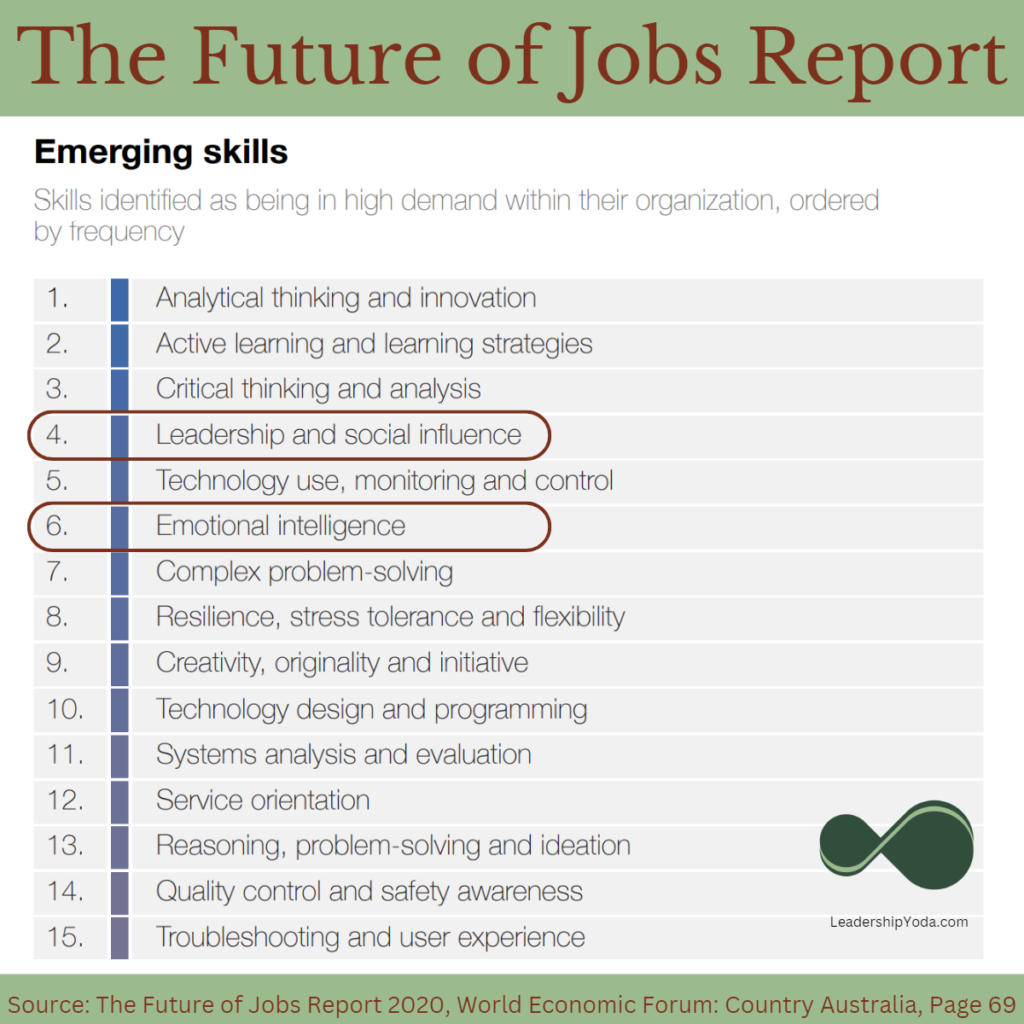Internationally renowned psychologist, author, psychologist, and scientific writer Dr Daniel Goleman, researched hundreds of organisations and discovered that Emotional Intelligence (EQ) is twice as important as IQ to achieving corporate goals. He noted the best; the rest differed by 90% at most senior job levels.
Leaders that demonstrate emotional intelligence are considerably better at recognising and regulating their emotions; they are much more productive & effective. They are better self-aware and are much more in control of their feelings. Leaders with high emotional intelligence (EI) pay careful attention to their team, control their emotions when necessary, and remain cool, calm and composed under pressure.
They have empathy for others and excellent social skills, which build trust and relationship networks. With them, their team, followers, and subordinates go above and beyond to meet & exceed objectives.
Emotional intelligence as a success factor
Effective leadership involves getting the job done while ensuring that the team is operating at an optimal state of performance, or “flow,” at all times.
“Today’s leaders require more than just intelligence; they need emotional intelligence (EQ).”
Narinder Sharma
Emotional intelligence consists of two core skills –
a) Conscious awareness of emotions, their effects, impact & influence on oneself and others.
b) Ability to manage & regulate own and others’ emotions, particularly when under pressure.
Emotional Intelligence Origins
Even so, the term “Emotional intelligence” first appeared in psychology journals & publications in the 1960s. However, it was in 1900 that Emotional Intelligence was regarded as a comprehensive measure. Two psychologists – Peter Salovey and John D. Mayer, coined the term ‘Emotional Intelligence, and their study was published at Yale University.
“Emotional Intelligence is a form of social intelligence that involves the ability to monitor one’s own and other’s feelings and emotions, to discriminate among them, and to use this information to guide one’s thinking and action”.
– Peter Salovey and John D. Mayer
Dr Daniel Goleman studied and combined numerous social and emotional components to predict success. He supported the idea in his famous book on Emotional Intelligence: “Why It Can Matter More Than IQ” in 1995. It generated a lot of interest and buzz around the corporate world. His book was released in over 40 different languages worldwide and quickly became a bestseller.
Dr Goleman observed and summarised a study of 188 organisations to identify the role of intelligence (EQ and IQ) in success. He concluded that emotional intelligence EQ was crucial and had much more influence than IQ.
Emotional Intelligence Elements
According to Dr Daniel Goleman, Emotional intelligence consists of five components.
1) Self-Awareness – ability to recognise and understand one’s own emotions.
2) Self-Regulation – ability to regulate emotions, even under pressure and during high stress.
3) Motivation – an intrinsic motivation to pursue goals that lead to better outcomes.
4) Empathy – ability to understand, be aware of, and be sensitive to the feelings, emotions, and experiences of another. It helps build and maintain relationships and resolve conflicts in constructive ways.
5) Social Skills – a wide range of social skills that lead to success for the team/organisation; it includes skills like Persuasion, Influencing, Communication, Conflict Management, Building relationships (Rapport) and so on.

Emotional Intelligence in the Workplace
Almost all jobs require some interaction with others, and the ability to get along with others and understand their perspectives is a valuable asset. In addition, emotionally intelligent leaders are adept at reading emotional cues such as tone of voice, body language, and facial expressions.
They are better at interacting with others and creating lasting impressions and relationships. As a result, people are willing to work for them and go above and beyond when the time calls; this explains why people with high EQ are more successful and earn more. In addition, high-EQ people question the status quo and promote a positive cultural shift in the organisation, leading to more success.
There can be a dark side to emotional intelligence too. Since emotional intelligence is a human ability to understand and regulate emotions in self and others, it can potentially be used for negative and positive outcomes. For example, research at the University of Toronto found that people with self-serving, Machiavellian tendencies can use emotional intelligence skills to manipulate, embarrass, and undermine other people for personal gain. Therefore paying attention to empathy and motivation elements is equally essential to awareness and regulation.
Benefits of Emotional Intelligence
Another study of over 200 professions found that emotional intelligence was strongly linked to better performance in senior, managerial, leadership and high-level roles and in roles where interaction with others is required.
It is widely acknowledged that higher emotional intelligence may result in the following:
Improved self-awareness and decision-making
- Better overall work performance
- Healthier interpersonal relationships
- Encouragement and growth for personal development
- More sustained capacity for influence and leadership
- Increase in motivation to help achieve goals

According to the World Economic Forum, emotional intelligence is one of the top 10 skills needed for professional success in 2020 and beyond. While emotional intelligence (EQ) may have gone unnoticed in the past, it is now widely acknowledged as a crucial aspect of a person’s personality. In addition, EQ can be helpful in the workplace, particularly regarding stress management and teamwork.
Emotional Intelligence, or EQ, impacts how we control our behaviour, traverse through complexities, and make decisions that have a favourable outcome. Years of research have shown channelling your energy on emotional intelligence (EQ) can set you up for success.
